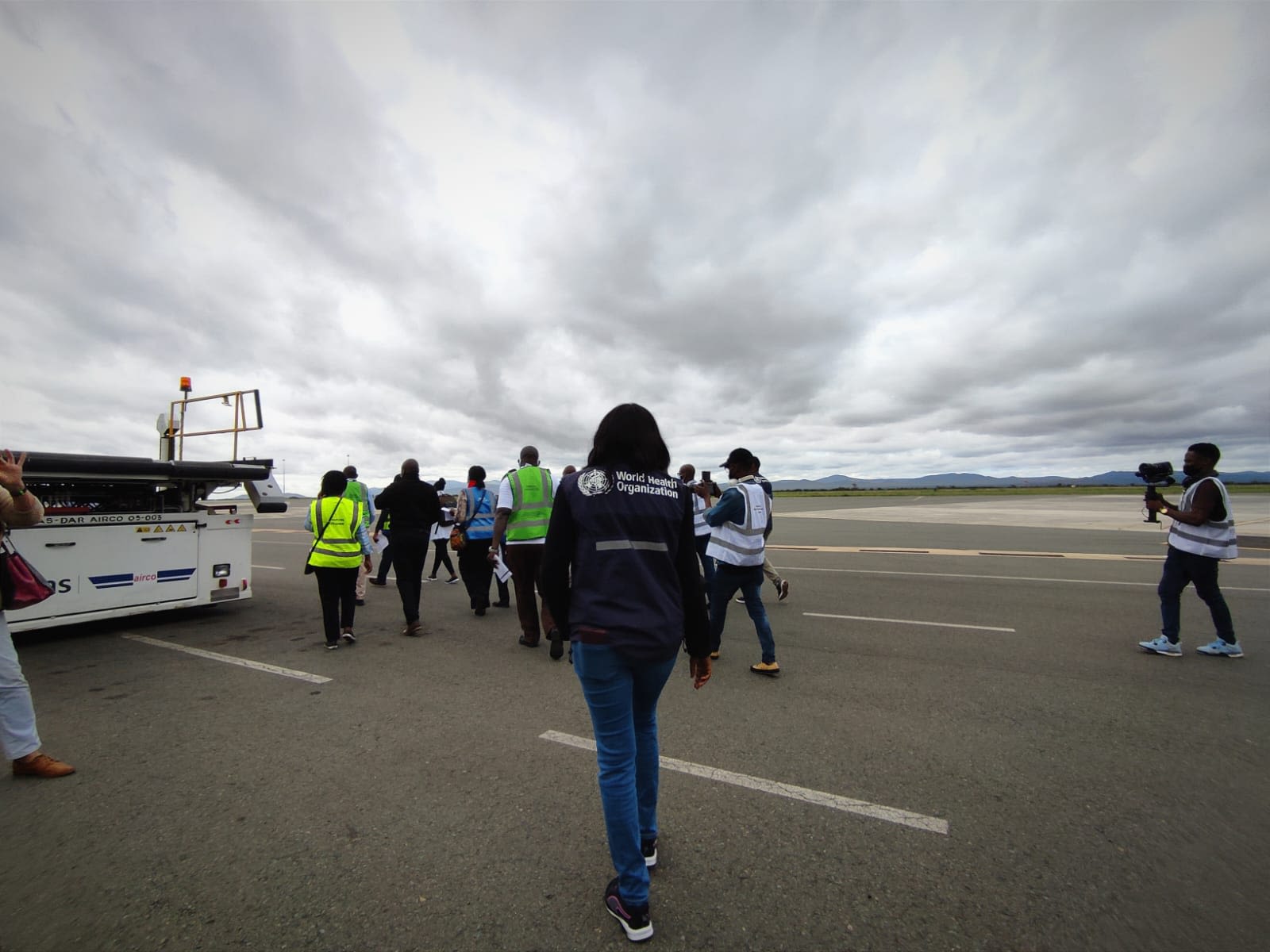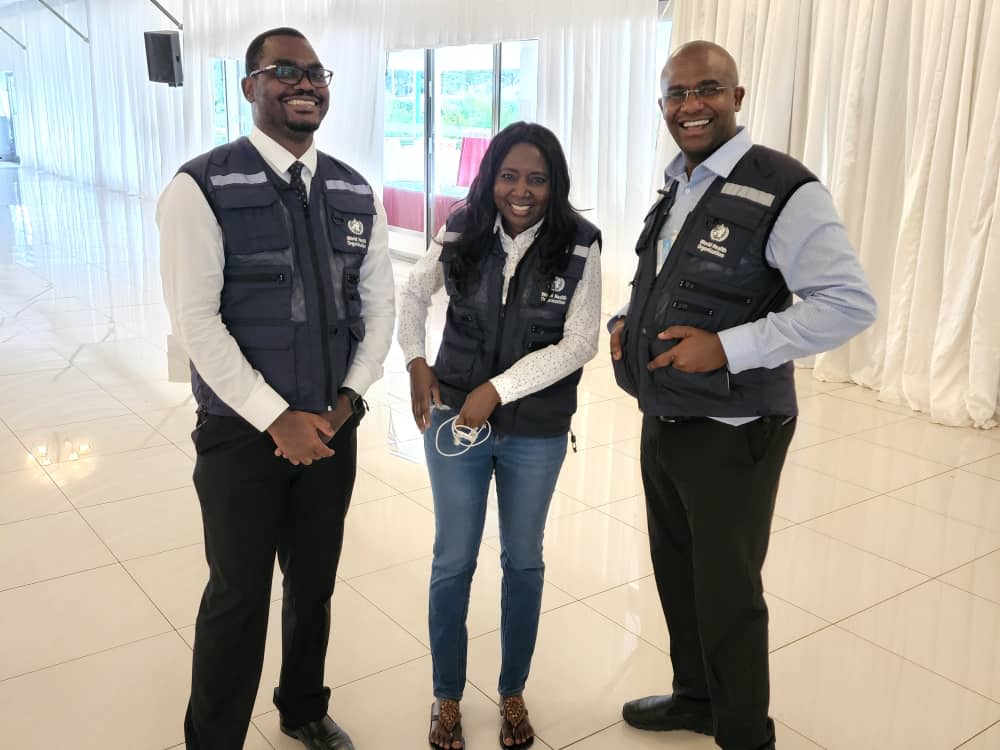Leeds at the WHO: Mary Stephen
Leeds graduate Mary Stephen is the Technical Officer for the Africa Region at the World Health Organization (WHO).

Dr Mary Stephen, Public Health Expert and Technical Officer, Africa Region.
Dr Mary Stephen, Public Health Expert and Technical Officer, Africa Region.
Dr Mary Stephen graduated from the University of Leeds in 2012 with a Masters in Public Health. Here, she tells us about her work with the WHO and provides insight, as well as good news, about health emergencies in Africa.
What do you do in the WHO's Africa Region?
I work with the WHO at the regional office for Africa on the health emergencies programme.
All 47 countries in the WHO Africa region are at risk of health emergencies.
Of the six WHO regions, Africa is the region that is worst affected by outbreaks. Every year, more than 100 public health emergencies are reported in the region — and several countries respond to multiple emergencies at the same time.
My work focuses on strengthening health emergency preparedness and response capacities.
We use the International Health Regulations, a global legally binding instrument to enhance health security and prevent the international spread of diseases. The regulations help us prevent, detect and respond to health emergencies.
“Learning from the Covid-19 pandemic, we know that health emergencies have the capacity to bring the entire world to a standstill.”
What improvements have you seen?
Over the years, there have been significant improvements in detection and reporting of public health events (within one hour to two days of detection) and the timeline for initiating response (now 24 to 28 hours). We've seen early containments of outbreaks such as Ebola, Marburg, Lassa Fever, Cholera and Yellow Fever, among others.
Some of these outbreaks were contained in record time. For example, the Ebola outbreaks in Uganda in 2019 and 2022, and the Ebola and Marburg outbreaks in Guinea in 2021 were contained within three months compared to the 2014-16 West Africa Ebola outbreak which lasted for two years.

Mary coordinated a pandemic simulation exercise with five East African countries at Kilimanjaro International Airport.
Mary coordinated a pandemic simulation exercise with five East African countries at Kilimanjaro International Airport.
The regional office has also coordinated the Covid-19 response and I led one of the pillars of response for the region — Points of Entry and International Travel.
I provided guidance on policy and technical support to countries to help them mitigate the risk of importing Covid-19. I also advised on the safe resumption of international travel based on the provisions of the International Health Regulations.
What's the impact of 75 years of the WHO?
In the last 75 years, the WHO has significantly contributed to improving health and well-being globally. Millions of lives have been saved.
In my area of work, the WHO has coordinated efforts towards strengthening capacities for health emergencies.
The negotiation of the ongoing amendment of the International Health Regulations contributes to keeping our world safer, as does the development of a pandemic accord based on lessons learned from Covid-19.
Learning from the Covid-19 pandemic, we know that health emergencies have the capacity to bring the entire world to a stand-still. So, public health is no longer a health problem, but a challenge that affects all sectors. It impacts on economies, lives, livelihoods and societies at large. The need to keep our world safe is critical for development.
“Public health is no longer a health problem, but a challenge that affects all sectors. It impacts economies, lives, livelihoods and societies at large.
The WHO, as the global lead for health, has a critical role to play in ensuring that all countries (high, low and middle income) develop the capacity to prevent, prepare for, detect and effectively respond to health emergencies in collaboration with the highest level of government.
What do low-income nations need from the rest of the world?
The world needs to invest in health and position health at the centre of development.
Countries with low economies are disproportionately affected by health emergencies and capacities for response. Health system capacity, especially at the sub-national level, is inadequate — as seen during the Covid-19 pandemic.
There is also a high burden of non-communicable diseases and communicable diseases such as HIV/AIDs, Tuberculosis, Malaria and neglected tropical diseases in these countries.

Mary and some colleagues at the World Health Organization.
Mary and some colleagues at the World Health Organization.
Low and middle income countries need global solidarity and cooperation before, during and after health emergencies to ensure that we have systems that can cope with the shocks of emergencies.
Countries with higher economies could help strengthen the health systems in these countries. Interventions would reduce the burden of these diseases, effectively respond to health emergencies and save lives.
What message do you have for others working in public health?
As public health experts, we all have a role in improving public health, reducing the burden of preventable diseases and saving lives.
Leeds graduates could explore opportunities to make their contributions to promoting health and wellbeing globally.
Mary's link to Leeds

What has your Leeds degree meant for you?
My University of Leeds Masters in Public Health provided me with a solid foundation for public practice. So far, I have made significant contributions to saving lives through my work in health emergencies.
I have met a good number of Leeds alumni in my work in the WHO. It is a great community of experts in different fields of public health.
Forever Leeds
312,000 alumni
197 countries
One global community
Never miss a moment
Update your details
Follow @LeedsAlumni
